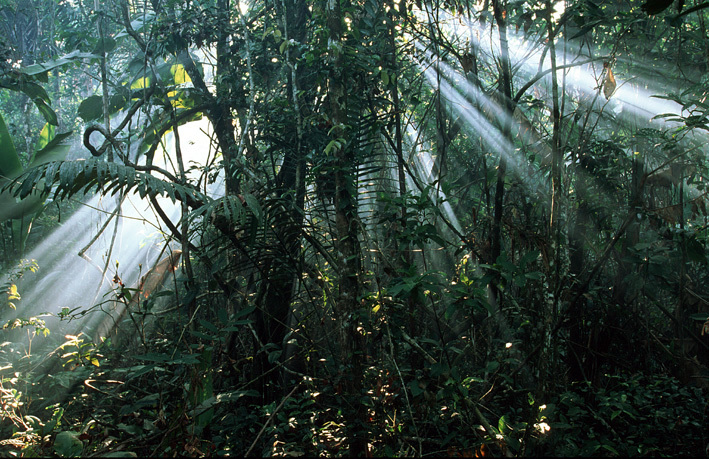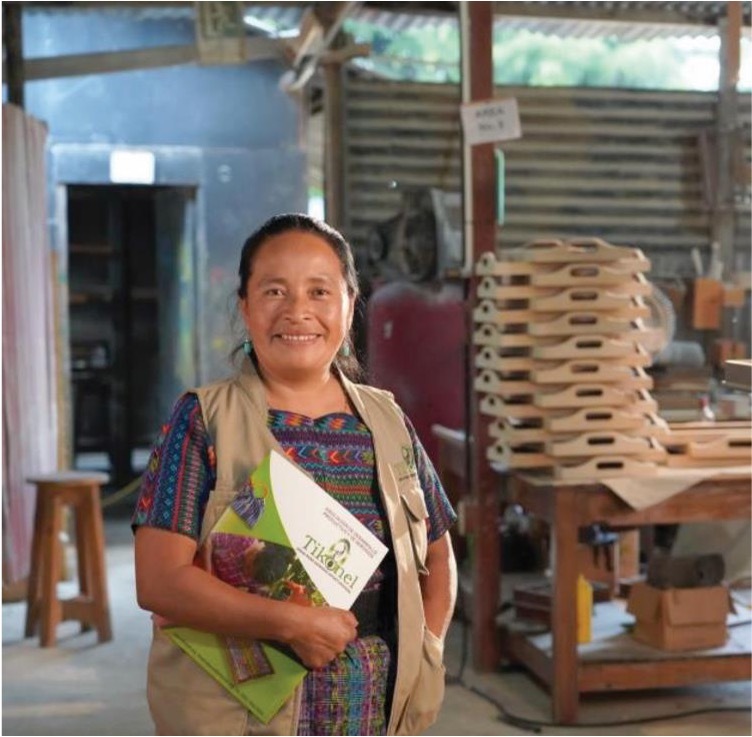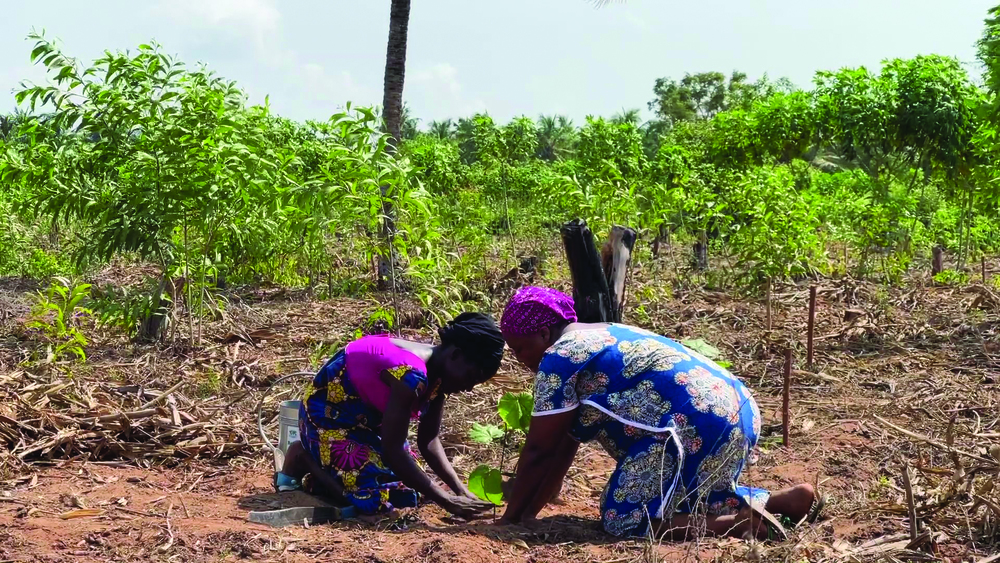International Day of the Tropics 2025: ITTO Executive Director calls for international solidarity for tropical forests
29 June 2025, Yokohama

Sunlight pierces through the dense canopy of a tropical forest in Guyana. Photo: ITTO
June 29 marks the International Day of the Tropics, a moment to reflect on both the remarkable richness and growing vulnerabilities of tropical regions. Covering 40% of the Earth’s surface and home to 80% of its biodiversity, the tropics are essential to global climate regulation, food security, and sustainable development.
The International Tropical Timber Organization (ITTO) continues its strong commitment to tropical sustainability by enhancing international cooperation and advocates inclusive solutions. With its core mandate centred on the sustainable management of tropical forests, ITTO’s influence spans trade facilitation, policy support, project implementation, and capacity building — all with the goal of balancing development and conservation.
Yet, despite their ecological and economic importance, many tropical countries face disproportionate levels of poverty, food insecurity, deforestation, and environmental degradation. The United Nations (UN) states that the current international crises have the potential to increase those living in extreme poverty in the tropics, currently estimated at 670 million.
On this International Day of the Tropics, ITTO underscores the importance of global collaboration in bridging knowledge, action, and investment to support thriving, resilient tropical landscapes.
Through a wide range of on-the-ground projects, ITTO champions sustainable forest management, enhanced processing, value addition and community-driven restoration, amongst others.
In Togo, 100 women in Blitta and Lacs Prefectures restored 35 hectares of degraded land, producing 48,000 seedlings over a two-year period. This effort improved food security, diversified income sources, and elevated the social standing of women while strengthening community bonds.
Together with partners, ITTO rehabilitated gazetted forests in Scio and Duékoué in Côte d’Ivoire, while also supporting displaced people, refugees, and local populations. Agroforestry systems and village cooperatives—now active in nine communities—enhanced food systems, livelihoods, and social cohesion for over 7,000 people.
Further towards Central America, ITTO strengthened small and medium-sized forest enterprises in Guatemala. One outstanding example is Sacalá Carpentry in Chimaltenango, which has grown from a modest workshop into a business offering over 100 wood products, doubling its revenue in three years and providing stable jobs, thereby reducing migration and supporting sustainable forest use.
Over in Asia-Pacific, in Fiji’s Rewa Delta, ITTO is supporting mangrove restoration through the leadership of local communities. The Nasilai women’s group planted 5,000 seedlings, while others adopted sustainable livelihoods, such as beekeeping and shrimp farming. These actions have improved ecosystem health and resource governance across coastal villages.

From Africa to Central America and the South Pacific, ITTO’s work proves that sustainable development and environmental protection go hand-in-hand, especially when communities are empowered as the agents of change.
As the world marks International Day of the Tropics, ITTO calls on governments, donors, and development partners to step up support for tropical regions—not just to safeguard forests, but to uplift the people who depend on them.
“Tropical forests are global assets, but their future depends on local action and international solidarity. When we invest in the forests and the people of the tropics, we invest in a sustainable future for all,” says ITTO Executive Director Sheam Satkuru. “It is a joint responsibility to ensure tropical forests thrive to meet global expectations and is in a position to mitigate the current triple planetary crisis”.
